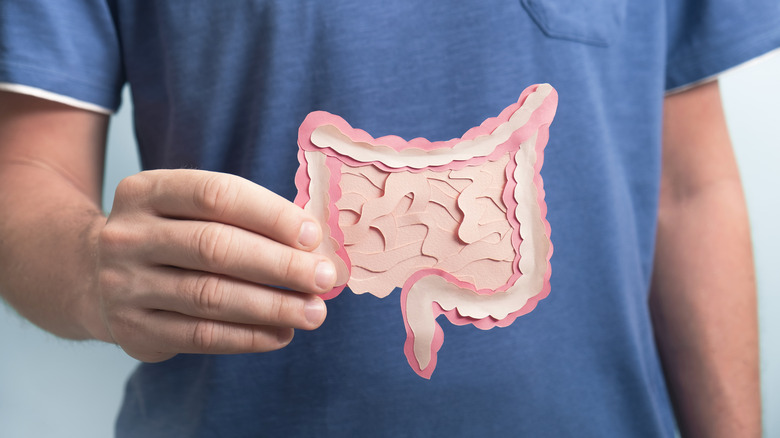Why You Might Want To Consider A Colon Cancer Screening Sooner Rather Than Later
Colon cancer is the third most diagnosed cancer and the second most deadly cancer among people in the United States. The disease affects men, women, and all nationalities and races. The Colon Cancer Coalition (CCC) notes that one in 24 people will develop the cancer, and adds that people with a family history of the disease are two to three times more likely to get it.
According to the American Cancer Society (ACS), a person with colorectal cancer (in either the colon or rectum) may experience blood in the stool, giving it a black or dark brown color. You may also experience diarrhea, constipation, abdominal cramps, or a sensation that your bowel isn't completely empty. Other signs of colon cancer include fatigue, weakness, and unexplained weight loss. That said, sometimes people don't have symptoms at all, per the CCC. Furthermore, the ACS notes that symptoms may not appear until the cancer has spread.
The number of colon cancer cases is rising among young people
While the overall number of colon cancer cases has dropped in the U.S., the number of young people developing the disease is on the rise. Data published in Cancer Epidemiology, Biomarkers & Prevention showed that people in their 30s saw the greatest increase. The CCC points out that people born after 1990 have twice the risk of developing the cancer than people born in 1950.
Experts think that certain lifestyle factors might play a part. The National Institutes of Health (NIH) explains that obesity, physical inactivity, and smoking increase the risk of developing colon cancer. In addition, an unhealthy diet lacking adequate vegetables and fruits and high in processed meat and fat may also contribute to the disease.
Regardless, these numbers explain why the recommended age to begin colon cancer screening has recently dropped from 50 to 45. The CDC adds that for people with certain risk factors, it might not be a bad idea to get screened even earlier.


